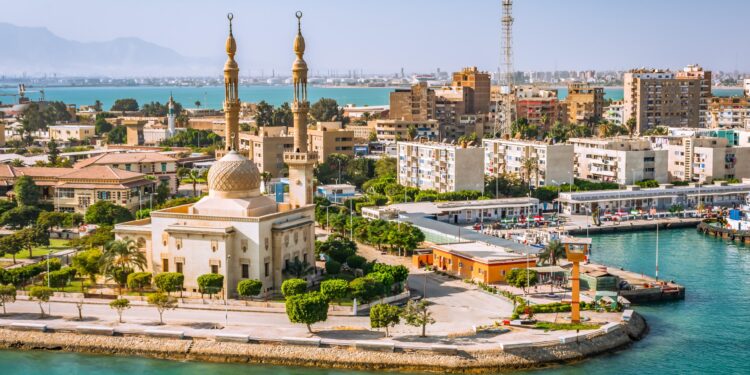In a significant step towards enhancing water services in Angola, SUEZ Group has officially signed a Memorandum of Understanding with the Angolan authorities to address the urgent needs of the Luanda province. This partnership aims to leverage SUEZ’s expertise in water management and environmental solutions to improve the quality and accessibility of water resources for the growing population of Luanda. The agreement underscores the commitment of both parties to sustainable development and efficient water supply management, laying the groundwork for projects that will modernize infrastructure and expand services in one of Africa’s most populous cities. As Luanda continues to grapple with water scarcity and service delivery challenges, this collaboration signals a proactive approach to securing a vital resource for future generations.
SUEZ Partners with Angola to Enhance Water Quality and Accessibility in Luanda
SUEZ has entered into a significant partnership with Angolan authorities aimed at revolutionizing water services in Luanda, the capital of Angola. This collaboration, formalized through a Memorandum of Understanding, seeks to enhance water quality and ensure greater accessibility for the city’s residents. Key objectives of this initiative include:
- Improving water infrastructure: Upgrading systems to reduce leaks and ensure consistent supply.
- Boosting water quality: Implementing advanced treatment processes to meet international standards.
- Expanding service coverage: Reaching underserved communities to provide equitable access to clean water.
As part of the agreement, SUEZ will leverage its expertise in sustainable water management to devise tailored solutions addressing Luanda’s unique challenges. The focus will also be on training local personnel to ensure long-term sustainability of the project. The anticipated benefits include:
| Benefit | Description |
|---|---|
| Health Improvement | Reduction in waterborne diseases due to increased quality of drinking water. |
| Environmental Sustainability | Enhanced water conservation practices, reducing environmental impact. |
| Economic Development | Creation of jobs through infrastructure development and maintenance. |
Implications of the Memorandum of Understanding for Sustainable Urban Development
The recent agreement between SUEZ and Angolan authorities marks a pivotal step towards enhancing water management and service delivery in Luanda. By fostering collaboration, this memorandum lays the groundwork for improved infrastructure and sustainable practices that will not only meet the immediate needs of residents but also support long-term urban resilience. With investment in advanced water technologies and the adoption of effective governance strategies, the partnership sets a benchmark for addressing critical issues such as water scarcity and pollution, while promoting environmental sustainability in a rapidly urbanizing landscape.
Through this initiative, SUEZ and local authorities aim to implement a series of measurable objectives that focus on community well-being and environmental impacts. Key implications of this partnership include:
- Enhanced Water Quality: Ensuring safe access to potable water for all residents.
- Infrastructure Upgrades: Modernizing aging water supply systems to reduce losses and improve efficiency.
- Capacity Building: Equipping local personnel with the skills necessary for effective water resource management.
- Community Engagement: Involving local stakeholders in decision-making processes to promote transparency.
| Goal | Expected Outcome | Timeline |
|---|---|---|
| Improve Water Access | Increase service coverage by 30% | 2 Years |
| Reduce Water Loss | Decrease non-revenue water by 40% | 3 Years |
| Strengthen Community Programs | Empower 500 local water ambassadors | 1 Year |
Expert Recommendations for Effective Implementation and Community Engagement
To ensure the success of the Memorandum of Understanding between SUEZ and the Angolan authorities, it is essential to implement expert recommendations that foster community engagement. These strategies can enhance transparency and build trust, making it easier for the public to understand the benefits of improved water services. Key approaches include:
- Regular Community Meetings: Hosting sessions to share project updates and receive feedback from local residents can empower the community and create a dialogue.
- Transparent Reporting: Establishing an accessible platform for sharing metrics and progress reports will help maintain public interest and accountability.
- Training Programs: Providing local training opportunities on water management and infrastructure maintenance can enhance employment and increase local expertise.
- Partnerships with Local Organizations: Collaborating with NGOs and civic groups can help in identifying community needs and tailoring services to meet those specific demands.
Furthermore, SUEZ should consider deploying innovative technology solutions to facilitate communication and service delivery within the community. Implementing mobile applications or online portals could enhance user experience by offering features such as:
| Feature | Benefits |
|---|---|
| Service Availability Check | Allows residents to see real-time service updates and maintenance schedules. |
| Feedback Mechanism | Lets users report issues directly and receive prompt responses. |
| Educational Resources | Empowers the community with knowledge on water conservation and hygiene practices. |
Final Thoughts
In conclusion, the recently signed Memorandum of Understanding between SUEZ and the Angolan authorities marks a significant step forward in enhancing water services in Luanda. This collaboration aims to address the critical challenges facing the province’s water infrastructure, ultimately improving access to safe and reliable water for the local population. As global efforts to prioritize sustainable resource management intensify, this partnership serves as a model for future initiatives aimed at fostering public-private cooperation in essential services. The focus now shifts to the implementation phase, where the commitment of both parties will be vital in realizing the ambitious goals laid out in this agreement. Stakeholders and residents alike will undoubtedly be watching closely as this partnership unfolds, hoping for transformative results that contribute to the well-being of Luanda’s communities.












